Andrei Sannikov: I'll Come Back To Belarus
16- 8.03.2024, 10:35
- 22,028
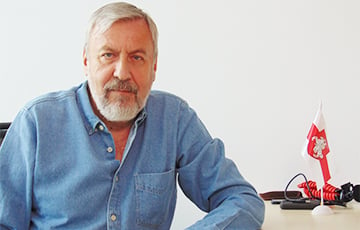
The story of a true leader.
Andrei Sannikov, the leader of the European Belarus civil campaign, candidate for the presidency of Belarus in the 2010 elections, celebrates his 70th anniversary on March 8.
In an interview with Charter97.org, the politician spoke about the most important moments of his biography, a window of opportunity for our country, and named what will help Belarus get rid of Lukashenka, create its own success story and quickly get back on its feet.
— It will be no exaggeration to say that you are a person with a unique biography. Let's start with the fact that you were born 70 years ago in Minsk in the family of the famous Belarusian director Kanstantsin Sannikov. How did family and community influence your commitments?
— Of course, they did. My family was theatrical and teacher's by its nature. Thanks to this, I got acquainted with the theater at an early age, and closely saw the most interesting people of that time, the 60s–70s. Their enumeration would take several pages. Suffice it to say that my mother was very friendly with Stefania Staniuta, who in turn admired my father's magic touch.
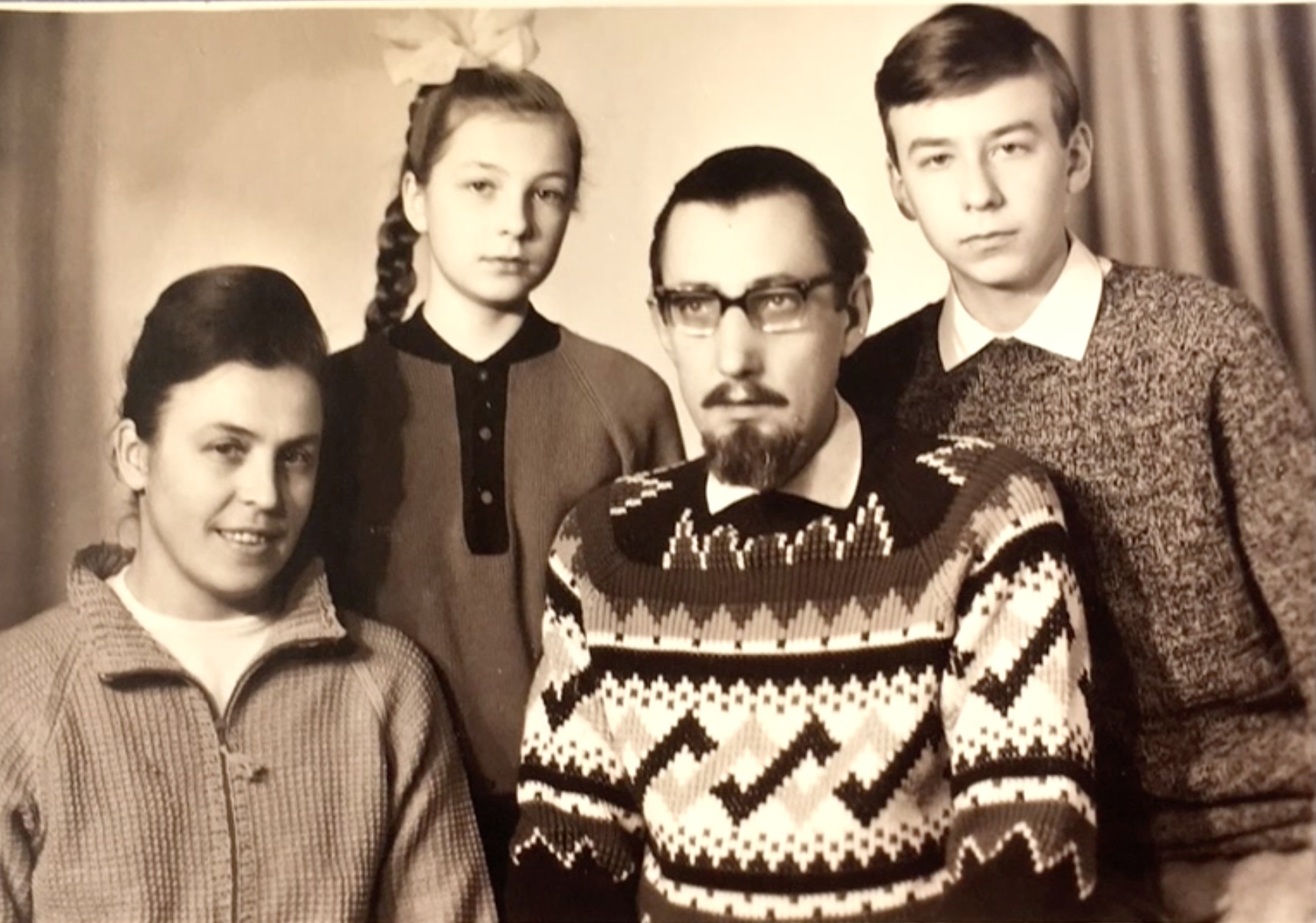
My grandfather had many students who loved him, called him “Batia” [father — edit.], and for him they were their own, came to our house, staged performances on the staircase and in our apartment. His students were some of the best talents in the Belarusian theater.
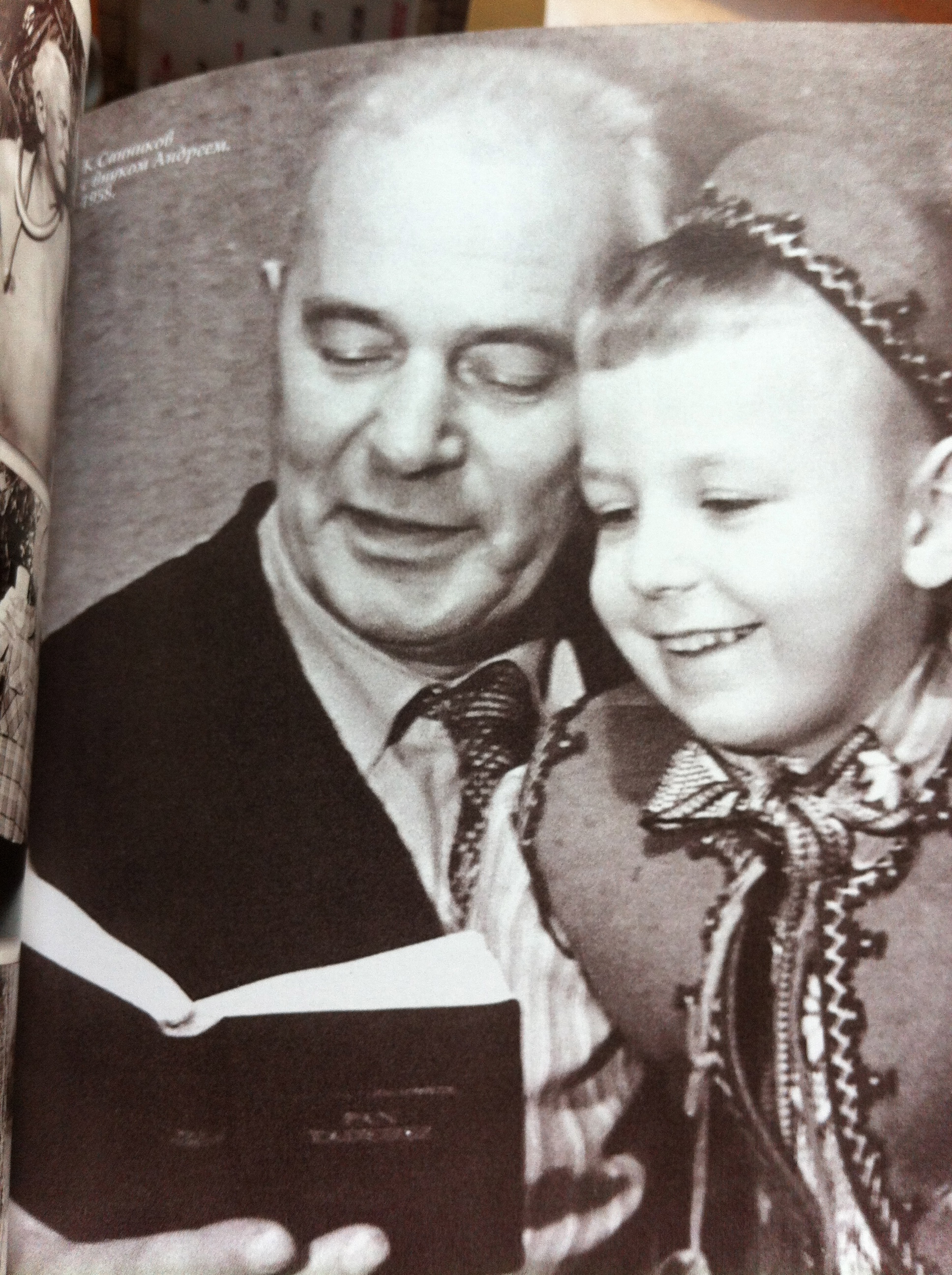
I was also influenced by the huge library that we had at home. I started reading early and read a lot.
The environment, of course, affects a person, and geography also affects. I was born and lived in the very center of Minsk, opposite the main post office, which means that all theaters, squares and parks, the Dynamo Stadium, “party” places are within walking distance. And also the “courtyard culture”, which, unfortunately, has now disappeared. So, of course, both geography and family influence a person's character.
— After graduating from the Minsk State Linguistic University, you worked as a translator in Egypt and Pakistan, as well as at the UN Secretariat in New York. What interesting acquaintances and experiences did you manage to acquire?
— This is, first of all, work in the specialty of an interpreter, meetings with people of different professions and new knowledge. What is then called life experience.
It was a work on rigs in a group of Soviet specialists in Pakistan. An unfamiliar and very interesting world. I personally touched the oil development. The people in our group were very bright professionals of the highest level.
Also, an aluminum plant in Egypt. It is also a quite unique production. Khrushchev and Nasser built the Aswan Low Dam and hydroelectric power plant, and we built an aluminum plant so that the electricity produced by this hydroelectric power plant would have somewhere to go. As you know, aluminum production consumes a large amount of electricity. In Egypt, there was mainly work, and only fragments of the Nile, the pyramids, the sea.
The UN is already New York and a completely unreal world. The very world that was so interesting to all of us behind the Iron Curtain, and this interest could not be interrupted by any Soviet ideology. New York is music, cinema, theater, books, including those banned in the USSR, even the banned ones first. Surely the people…
In the US, for example, I made friends with two fantastic women. These are Bel Kaufman, the granddaughter of Sholem Aleichem, who wrote the famous book “Up the Down Staircase” (I recommend everyone to read it), and Helen Stewart, the famous La Mama, the mother of avant-garde American theater. Later, when I was on work-related trips to New York, I always called them up and met them. Bel died at the age of 103.
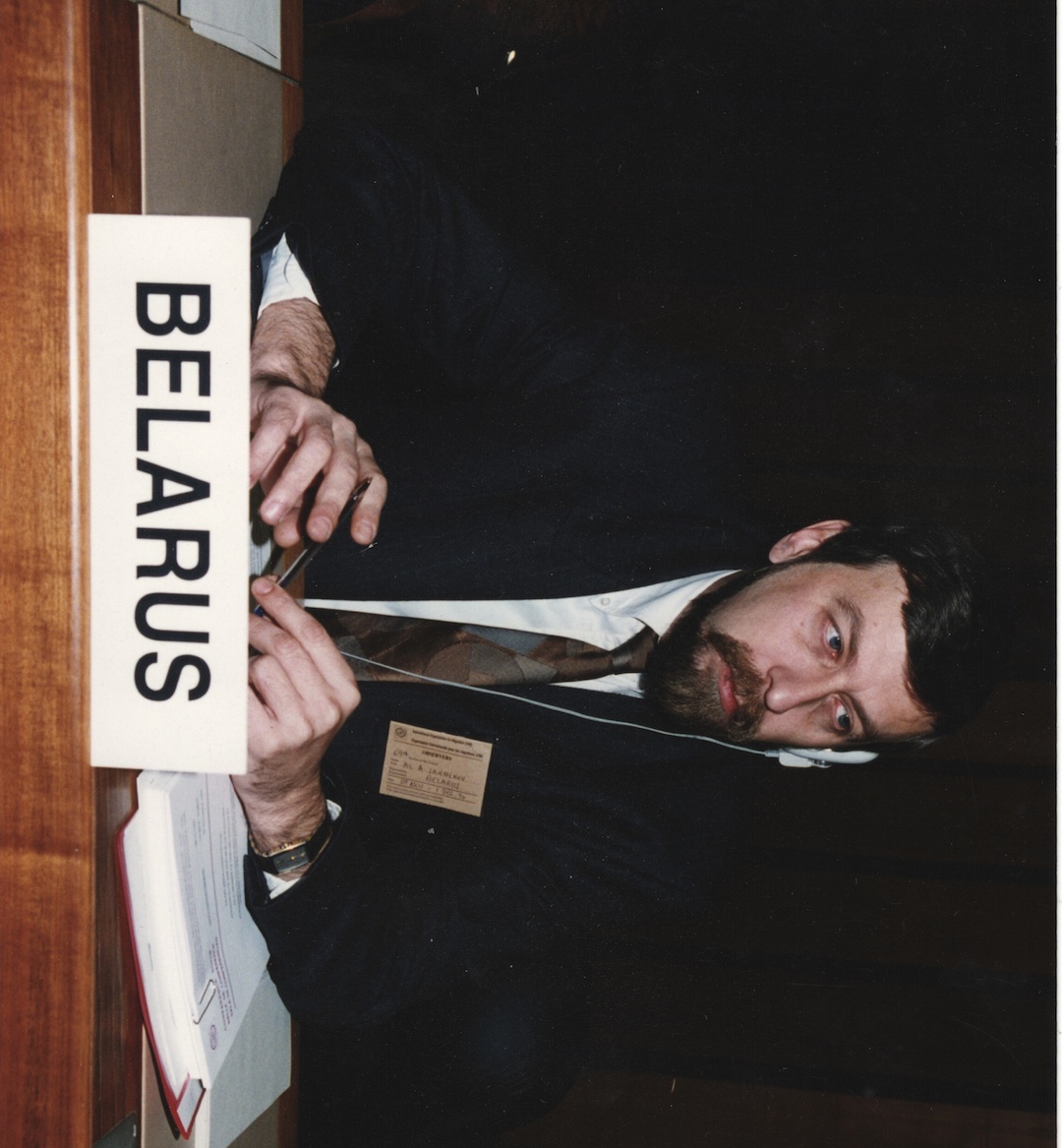
So the US was just “space” for me. Imagine, in the early 80s, to come to the most lively city that never sleeps, the cultural capital of the world, where life is boiling, to see how this huge city lives, and to work in the world-wide organization, the UN.
The work was not so easy at first. I came across such complex texts that I had to sit with them literally for 24 hours a day. Moreover, at that time there were neither computers nor Google: everything was in libraries if you were challenged with something unfamiliar.
I thank fate for this New York period, nevertheless I refused the extension of the contract that was offered to me (a rare case at that time), and returned home, since the “perestroika” had already begun and Belarus was changing.
— How did your knowledge and diplomatic experience come in handy after Belarus gained independence? Tell us please about your work as the head of the delegation in the negotiations on nuclear disarmament.
— After New York, I entered the Diplomatic Academy in Moscow. This was probably the only period when it was interesting to be in Moscow. It's impossible to imagine just a trip there now, even in a terrible dream.
And then it was the center of living, very unusual processes.
No matter how hard Gorbachev and the Politburo tried to preserve the Soviet Union, it was crumbling fast. It was very interesting to watch this in Moscow because in the capital of the Soviet empire, it was clear that the Communists would no longer be able to cope with this process.
What happened in Belarus, where I came for vacations and holidays, was very pleasing. A huge amount of information appeared, television “opened”, and archives also began to be publicly available.
Centrifugal processes were taking place throughout the Soviet Union. It was clear in Moscow. People were coming from all the Union there. Huge rallies took place, at which I listened to both Andrei Sakharov and Yuri Afanasyev [founder and rector of the Russian State University for the Humanities — edit.]. That is, leaders of democratic transformations. It was a good start for the future, which I associated only with Belarus, although there were many offers to stay to work in the allied Foreign Ministry, which was really turning into the Russian Foreign Ministry. It didn't attract me at all. Although some of my colleagues from other republics, classmates from the diplomatic academy, oddly enough, stayed to work in Moscow.
The studies gave me a lot both in terms of professional training and in terms of real life communication with bright people, in the academy and beyond. After all, I ran away from school to go to rallies, exhibitions, concerts, to listen to semi-prohibited lectures.
Graduated, came back to Minsk — and 24 hours a day work began, not immediately, however. I still found the Ministry of Foreign Affairs as it was in the BSSR.
I can definitely say that working in the Ministry of Foreign Affairs of the BSSR was a dream job. Or rather, a dream sinecure. You do not need to do anything, but from time to time you go to good countries: the United States, Switzerland, Austria — where the UN headquarters and its agencies are located. You come, you get a small traveling allowance, such as it is, but in foreign currency, and you also do nothing — not because you do not want to, but because it is impossible, everything is decided in Moscow. At the same time, among the employees of our Ministry of Foreign Affairs there were professionals of the highest level, I was learning their experience.
Fortunately, the easy life was over. Very serious work began. We had a small team, and after the disappearance of the Union, we had to establish full-scale relations: multilateral and bilateral.
One of the difficult, but very interesting moments was the work at the head of the Belarusian delegation at the disarmament negotiations. Not only on nuclear, but on the whole range of disarmament and security issues.
There was a large Treaty on Conventional Armed Forces in Europe, which was signed between NATO and the Warsaw Pact member states. After the Union ceased to exist, the treaty kept its force and it was necessary to determine the levels of armaments that were provided by this treaty for the entire Union, for each now independent country, so that it was clear how many tanks, aircraft, helicopters, artillery systems, bridge-layers, and so on could be in service.
This agreement was very difficult for Belarus. We were the most militarized country of all the participants. There were more than 250,000 troops on our territory. Since the Belarusian Military District was the foremost echelon in the Soviet Union, the burden was huge on the economy and the social sphere. Simultaneously with the disarmament in the field of conventional weapons, a serious reduction of the armed forces was discussed.
So, as a result of all these negotiations, we managed not to disarm, but even to arm the Belarusian army, because we worked smoothly in our delegation, which included deputies of the Supreme Council of Belarus, officers and diplomats. This happened before Lukashenka came to power, and everyone worked for an independent Belarus, aware of their responsibility. In general, the military among our delegations were beyond praise, overplaying even experienced Russian experts, military lawyers and negotiators.
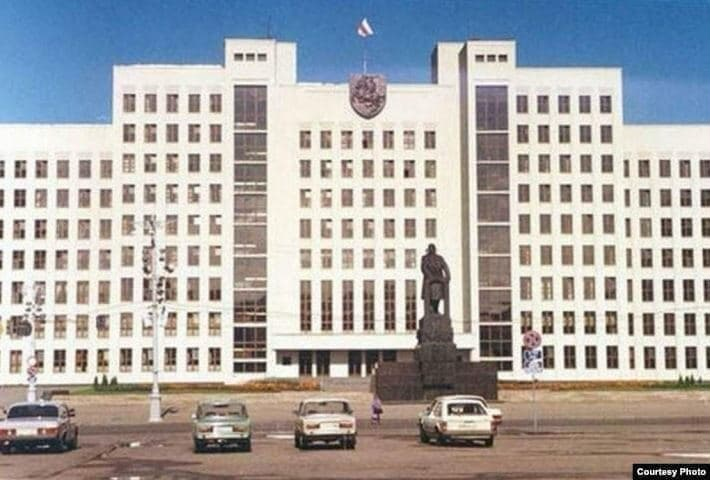
Therefore, we managed to get more helicopters and aircraft than, for example, Poland, and other types of modern weapons. There was only one miss with tanks. Then, for some reason, there were many former tank crewmen in the army and in the government, and they decided out of greed that the group that would be withdrawn from Germany should leave for Russia, and the tanks could be left in Belarus. And those tanks, the T-80, were quite a failed type, and they had a small engine life, and we did not have a base for them. This is where I could not argue with the military. In general, we successfully held negotiations and received modern weapons on the territory of Belarus for the planned number of armed forces.
Nuclear disarmament is another matter. There were several treaties between the Soviet Union and the United States, and after the independent states appeared, different treaties had to have different numbers of participants on the basis of territory.
There were eight participants to the Intermediate-Range Nuclear Forces Treaty on the part of the former Soviet Union, but this treaty was already fulfilled, there were only formalities to be completed, which we successfully resolved.
There were four participants from the former Soviet to the Union Strategic Arms Reduction Treaty: Belarus, Ukraine, Russia and Kazakhstan. I constantly emphasize that in the first period, when we were just beginning to talk about this treaty, not only Russia, but also the United States were very dissatisfied with our participation. They believed that it was enough for them to agree with Russia, and pin us down to facts.
Also, it was important for us to advocate our rights under this agreement so that nothing would happen on our territory without our knowledge. That was just very painful for Moscow. Apparently, they decided that our independence had failed, and they would still dispose of the military arsenal in our territories. But we did not allow this to happen and defended our rights in rather difficult negotiations.
By the way, these negotiations helped us to establish very good relations with the United States not only in the military, but in almost all areas.
First, we fulfilled our obligations responsibly, so the assistance that was initially offered to us to fulfill the contract in a difficult economic situation grew from about $10 million to $110-120 million and continued to increase. A talented scientist Siarhei Yauhenievich Chyhrynau, the director of the institute in Sosny, helped a lot. We worked great with him, and our perseverance worked. Long live his memory.
Secondly, the delegations that flew to the United States led by Stanislau Shushkevich, and the negotiations that were held there, were largely prepared by our disarmament negotiations. Therefore, in the US representatives were already talking to the Belarusians as responsible partners.
Well, Bill Clinton's visit to Belarus, of course. It was a landmark visit and very interesting agreements were reached. The President of the United States came with the disarmament team. We continued to talk not only about disarmament, but also about conversion, because there were defence industry facilities in Belarus that needed reformatting.
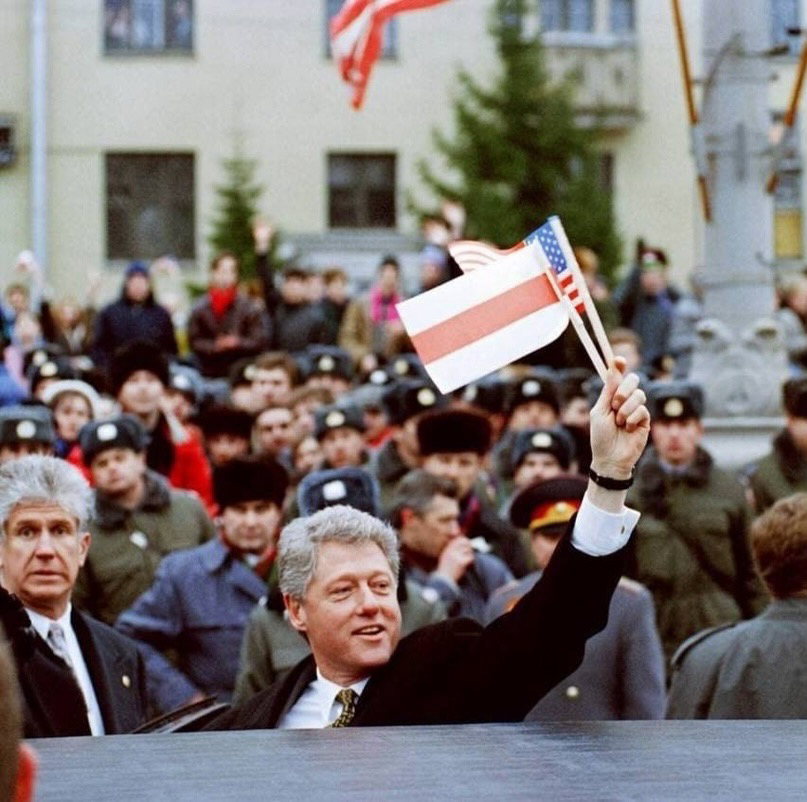
— You were appointed the Deputy Minister of Foreign Affairs of Belarus in 1995 and had a high rank of Ambassador Extraordinary and Plenipotentiary. You resigned in 1996 and actively participated in the fight against Lukashenka. What does it feel like to be in the lead and go into opposition?
— It was already clear where all this was going. Because democracy was being halted and according to the draft “constitution” [which Lukashenka put to a “referendum” in 1996 — edit.] it was clear that this was not a “draft constitution” at all, but a declaration of a coup d 'état that Lukashenka intended to commit.
I was lucky to work in the most important, as I believe, ministry of the young state and in the most interesting period. It was clear that it would be impossible to stay there in this situation.
Here came this collective farm pack, which began to stop everything, including what we all spent a lot of effort and sleepless nights on. It was painful to watch. I stayed only because I had to finish the work under the contracts. I understood that if I had retired earlier, some things would be halted very quickly and not to the benefit of Belarus.
I decided to resign without consulting anyone, not caring about the “alternate airfield”. I made this decision and applied. They tried to dissuade, tried to bribe, tried to threaten, tried to offer very good positions abroad. But it was important for me, probably, to somehow influence the whole situation, because the situation was swinging then.
Only a few days after I submitted my application, I learned that Prime Minister Mikhail Chyhir had also resigned. I was glad of this fact because, in a sane state, the resignation of the Prime Minister was supposed to mean the resignation of the entire government, which meant a political crisis that could prevent the coup plotted by Lukashenka.
But there was already an authoritarian ruler, he managed to crush everything, including the impeachment attempt, although, logically, the government should have been dissolved, and the Supreme Council could have played a significant role.
The political crisis could have led to some healthy processes, but everything was stifled.
Today we have to watch how the officials of the same collective-farm conscription, who bargained for their chairs for loyalty, suddenly declared themselves “leaders of the opposition”. That's quite disgusting...
I didn't think about what I would do after my resignation. I did not doubt that there would be an occupation for me, but at the time of my resignation, I absolutely did not talk to anyone, did not agree on anything.
It just happened, after leaving office, I very quickly came to the group that gathered around Henadz Karpenka, at that time, I believe, the undisputed leader of the opposition. We started working together. He was just creating a “shadow cabinet”, which was called the National Executive Committee (NEC). Quite famous people gathered there: for example, Stanislau Bahdankevich, Viktar Hanchar, Yury Zakharenka, Vasil Shlyndzikau. We had professionals with great experience for every sphere. It was a full-fledged “shadow office”, and we were working fruitfully to analyze the situation, reacting to what was happening in the country, strengthening ties with friends outside Belarus. So the respite after the resignation turned out to be very short.
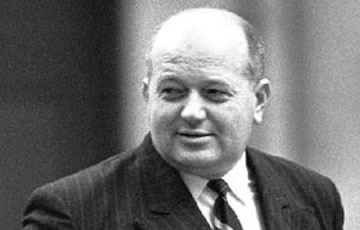
We at the NEC worked to ensure that Henadz Karpenka strengthened as a candidate in the upcoming elections. But there was a series of events, including the murders of opposition politicians, the mysterious death of Karpenka — and Belarus was thrown back even further.
— You were one of the founders of the Charter'97 Civil Initiative. Tell us how it originated and what its significance is.
— I had a kind of discussion club at home, which included politicians, analysts, journalists and businessmen. We discussed how and what to do in the current situation. The circle of participants in these discussions expanded and the situation did not improve. Journalist Aleh Biabienin was kidnapped, journalist Pavel Sharamet was imprisoned. We had to react to this lawlessness.
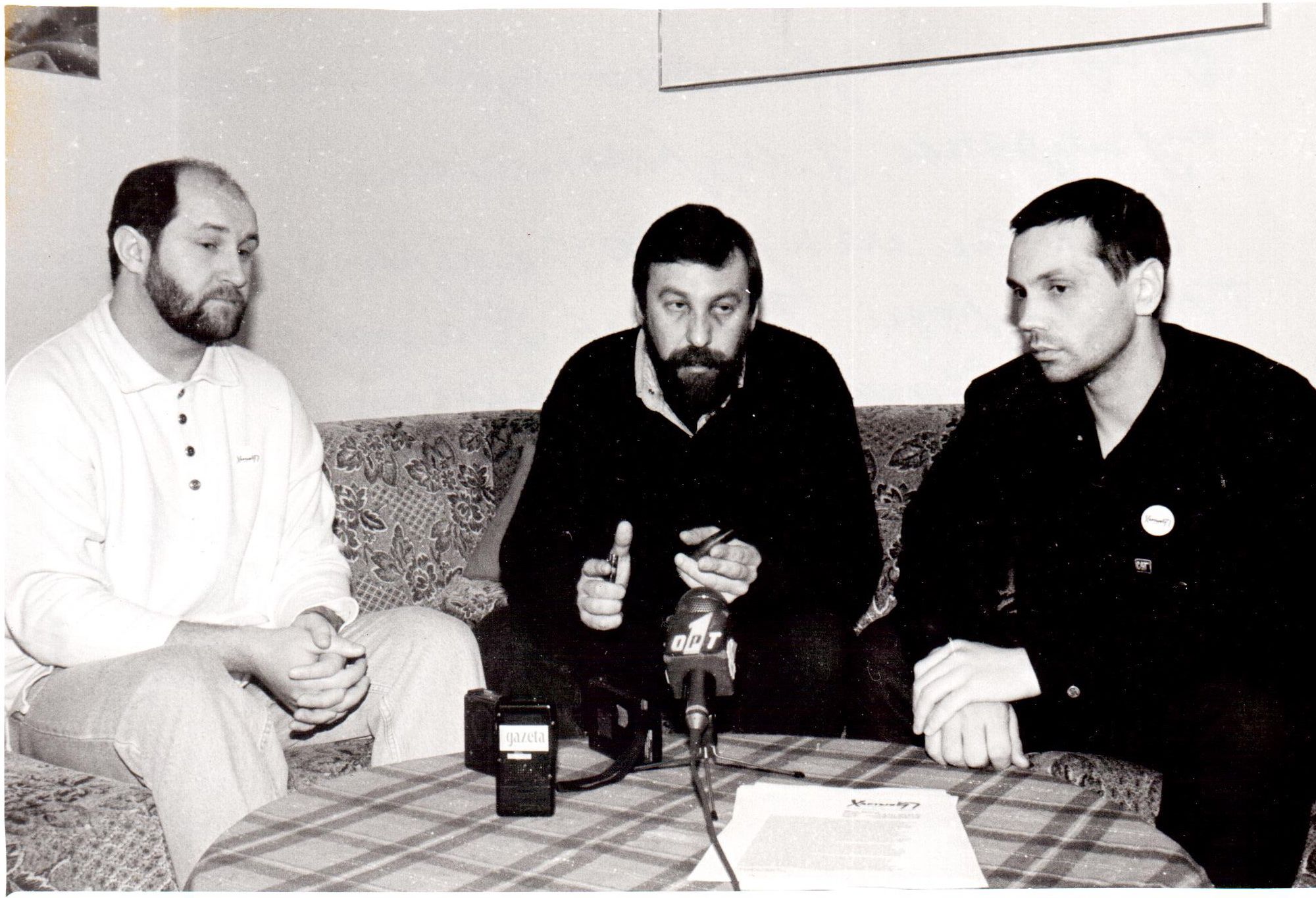
The idea of the Charter was born among the journalists, and the signatures collection for the declaration was initiated by independent media, which at that time could still be called it like that. The rest, as people say, is history. Charter existed for some time as a Civic Initiative, today it is the best and most popular Belarusian independent website founded by Aleh Biabenin – Natallia Radzina, its Editor-in-Chief, keeps it at the forefront.
— You also were at the origin of the European Belarus Civil Campaign. Why did it appear and what was done thanks to its team?
— The answer to each of your questions would fill a full-fledged book.
The European Belarus campaign was proclaimed as a response to the challenges of the time and as an indicator of the maturity of our team. Against the backdrop of the Putin-Lukashenka fuss, it was necessary to clearly state the political course of Belarus, and we were ready for this. Of course, this was a political statement and the campaign has political goals. We could call ourselves a party, but since the time of the Charter we have had the principle of “no registration under this regime.” As our reliable and stronghold Dzmitry Bandarenka says, “partisans do not get registered with the Gestapo.”
We have always strived for real unification, a combination of forces, which is why the creation of the European Belarus campaign was announced by people who did a lot to resist the regime: Mikhail Marynich, Viktar Ivashkevich, Mikalai Statkevich, and your humble servant.
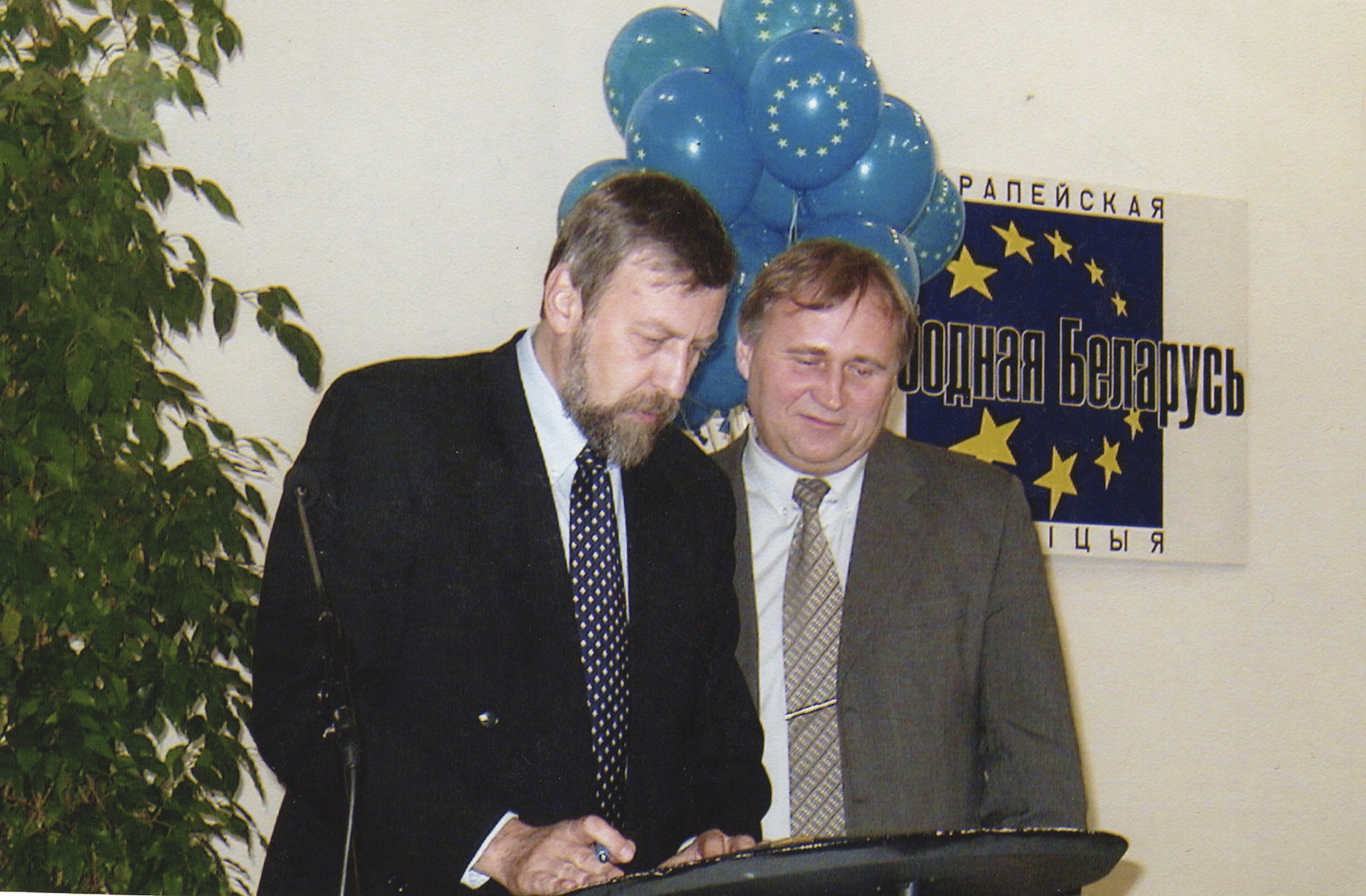
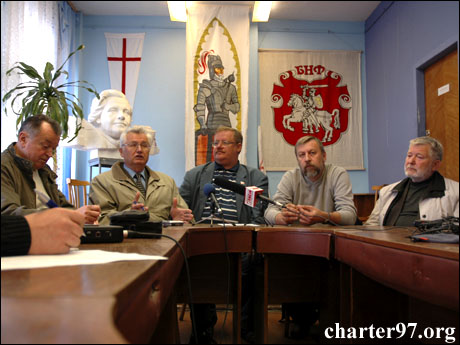
— Why did you decide to run for president of Belarus in the 2010 elections?
— In general, we worked as a team during all presidential elections. Since 2001, when Uladzimir Hancharyk was a candidate — unsuccessfully, I must say.
And every time they start this old music over and over, they say, “we need a single candidate.” We had a “single candidate” in 2001, Hancharyk — a compromise figure who burned out because of the compromise, that is, he absolutely did not fulfill his functions.
In 2006 there was Aliaksandr Milinkevich, also as a “single candidate”. But Aliaksandr Kazulin revived the campaign. For some reason, Milinkevich, as soon as he was chosen as the “single candidate,” immediately fell asleep for several weeks. Apparently, he decided that since he was chosen as “single,” he had solved all his problems and it was time to rest.
I was constantly pushed to become a “candidate” by my friends and colleagues, and in 2010 we realized that we no longer had “candidates”, we had run out. I had to make a difficult decision because I understood how difficult it would be.
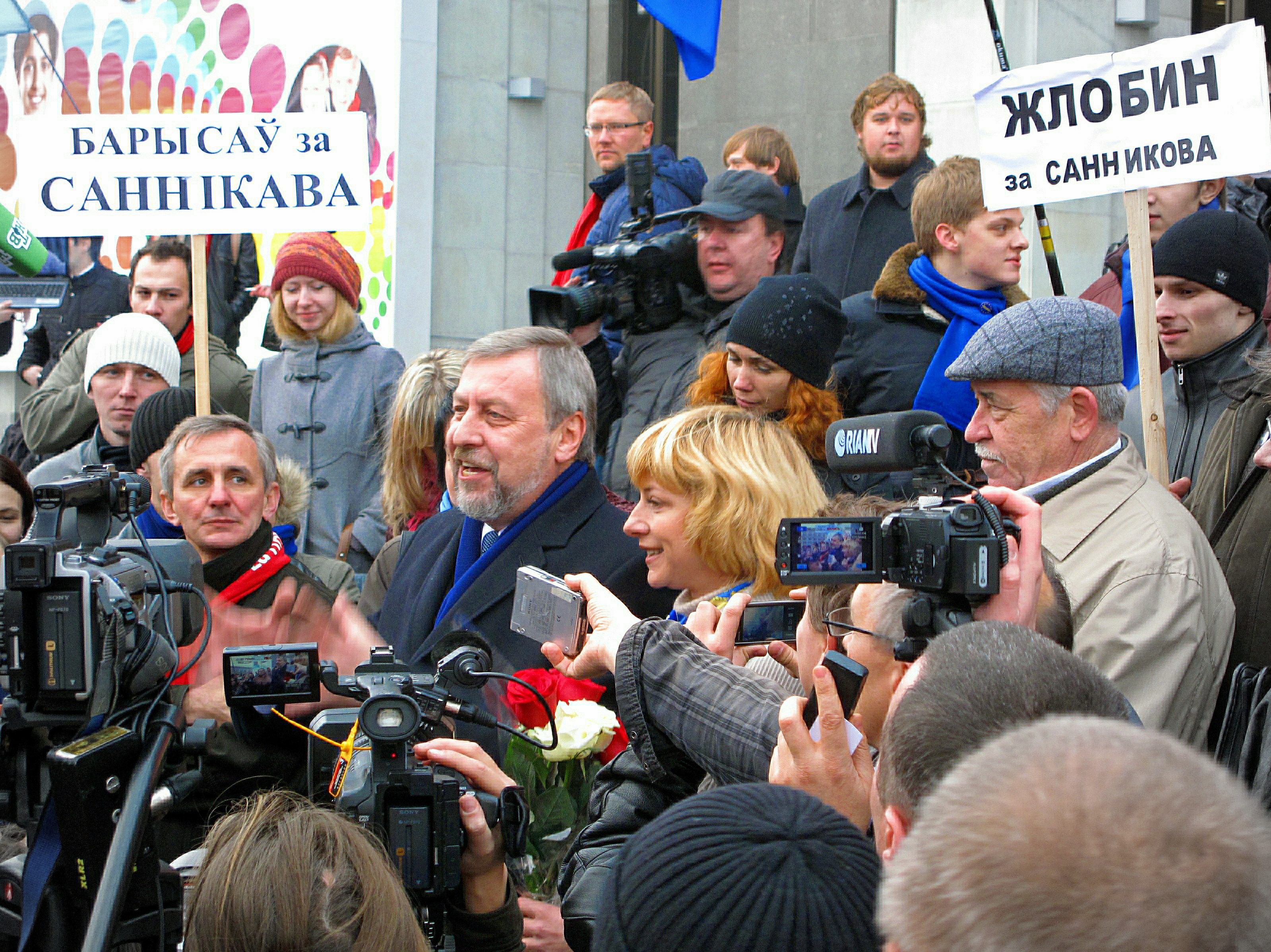
And not even because of complexity and danger, but because there simply weren’t enough resources. It is very difficult to conduct a full-fledged campaign in a dictatorship. But here the attractiveness of the whole team worked, and the team was the strongest. There has never been such a “dream team” in Belarus either before or since. And this team, consisting of professionals, young activists, famous people, attracted a lot of volunteers. Therefore, the issue of resources was partially resolved through volunteer activities.
— What was the significance of this campaign for you and for Belarus?
— It was a popular uprising, in my opinion.
Its significance is that it was then that the movement towards revolution began. Previously, during the elections of 2001 and 2006, people were not particularly “involved.” That is, there was such an approach: observe from the outside the activities of the opposition and wait, wait passively. If something works out, well, good, we’ll welcome it. If it doesn’t work out, at least we haven’t been exposed and won’t be in danger under this system.
In 2010, people became fully involved. They actively took part in the entire campaign and it showed. After all, the queues to sign did not start in 2020. They started in 2010, when people lined up in huge chains. The authorities put up all sorts of obstacles, but, nevertheless, full houses gathered for meetings with our team, I emphasize, because we were the clear leaders, as subsequent events showed.
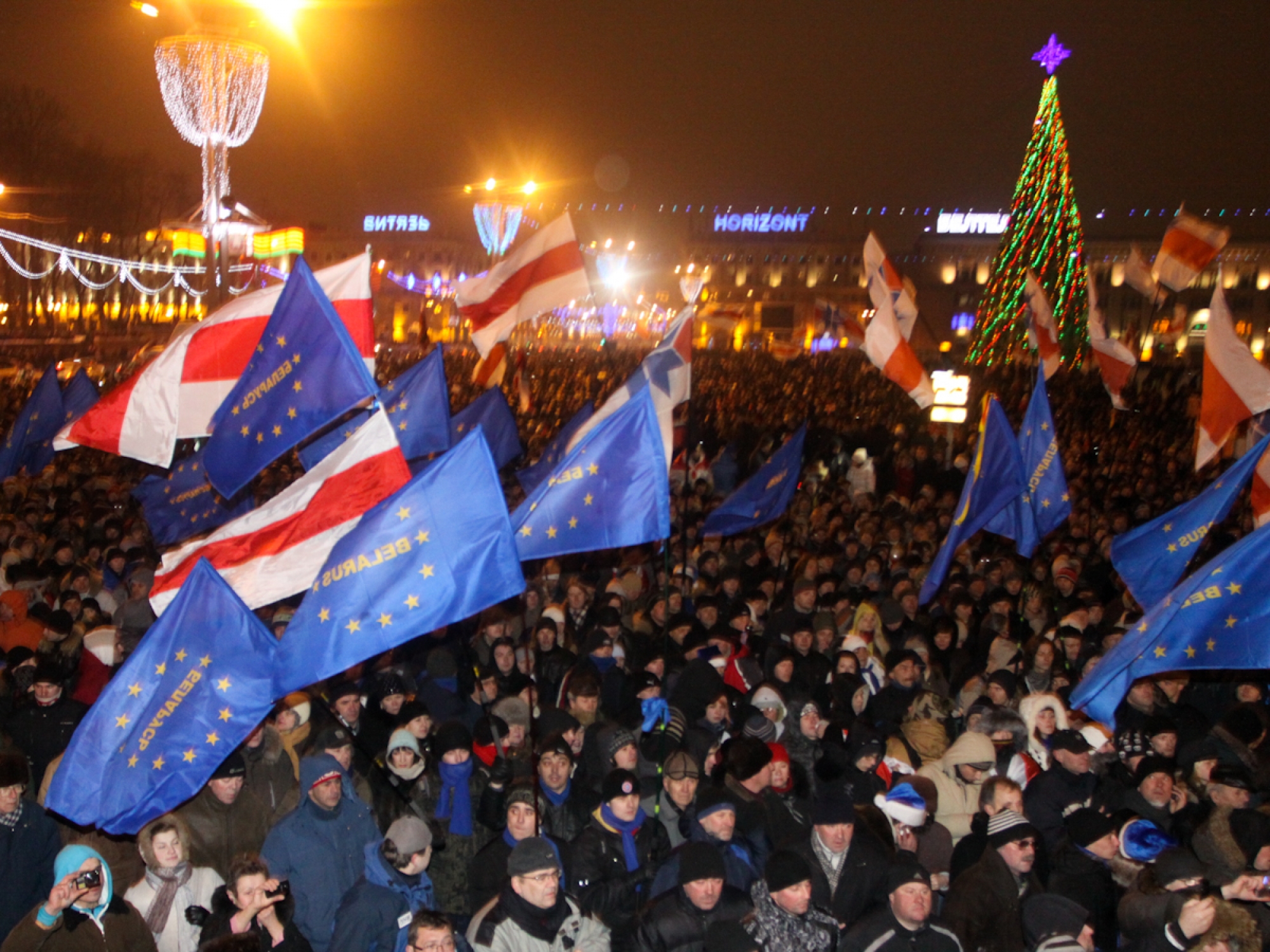
After the elections, I had to spend almost two years in prison. But you can read about this in my book “Belarusian Amerikanka, or Elections under a Dictatorship.”
I would note two points. First: the 2010 campaign is the beginning of preparations for the revolution. And the second is the emergence of that powerful Belarusian solidarity that we still observe, despite the repression. Because it was in 2010, 2011 and 2012 that chains of solidarity began to form, and people showed the most amazing qualities in helping those who suffered, those who were imprisoned, and their families. I know by the example of my family how people took care of Daniil, my and Iryna Khalip’s son, who the authorities tried to kidnap and take to an orphanage.
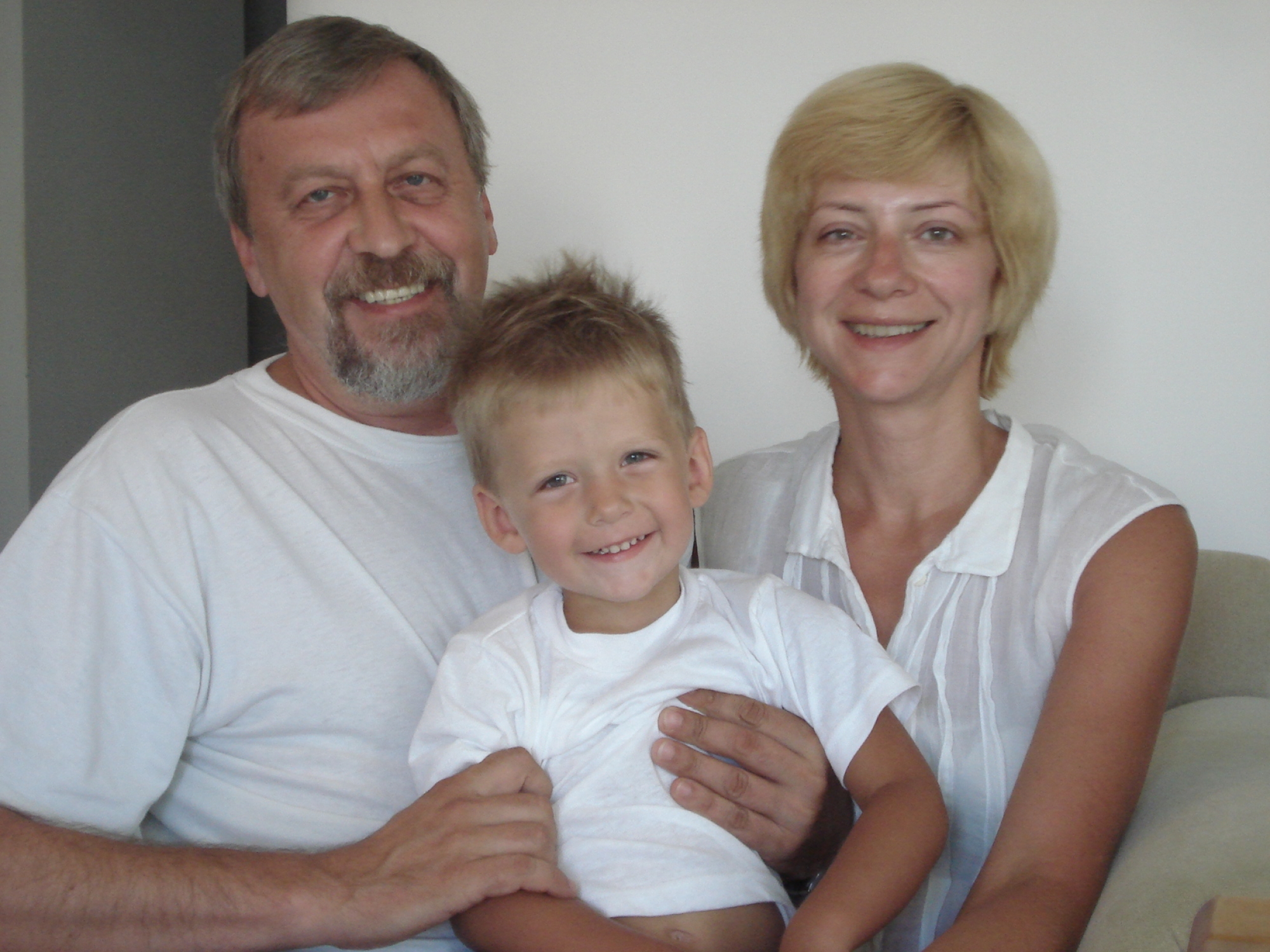
These two things are extremely important — and they totally worked in 2020. Lukashenka again managed to stifle the protests, but I think all this is alive in society, and will be in demand.
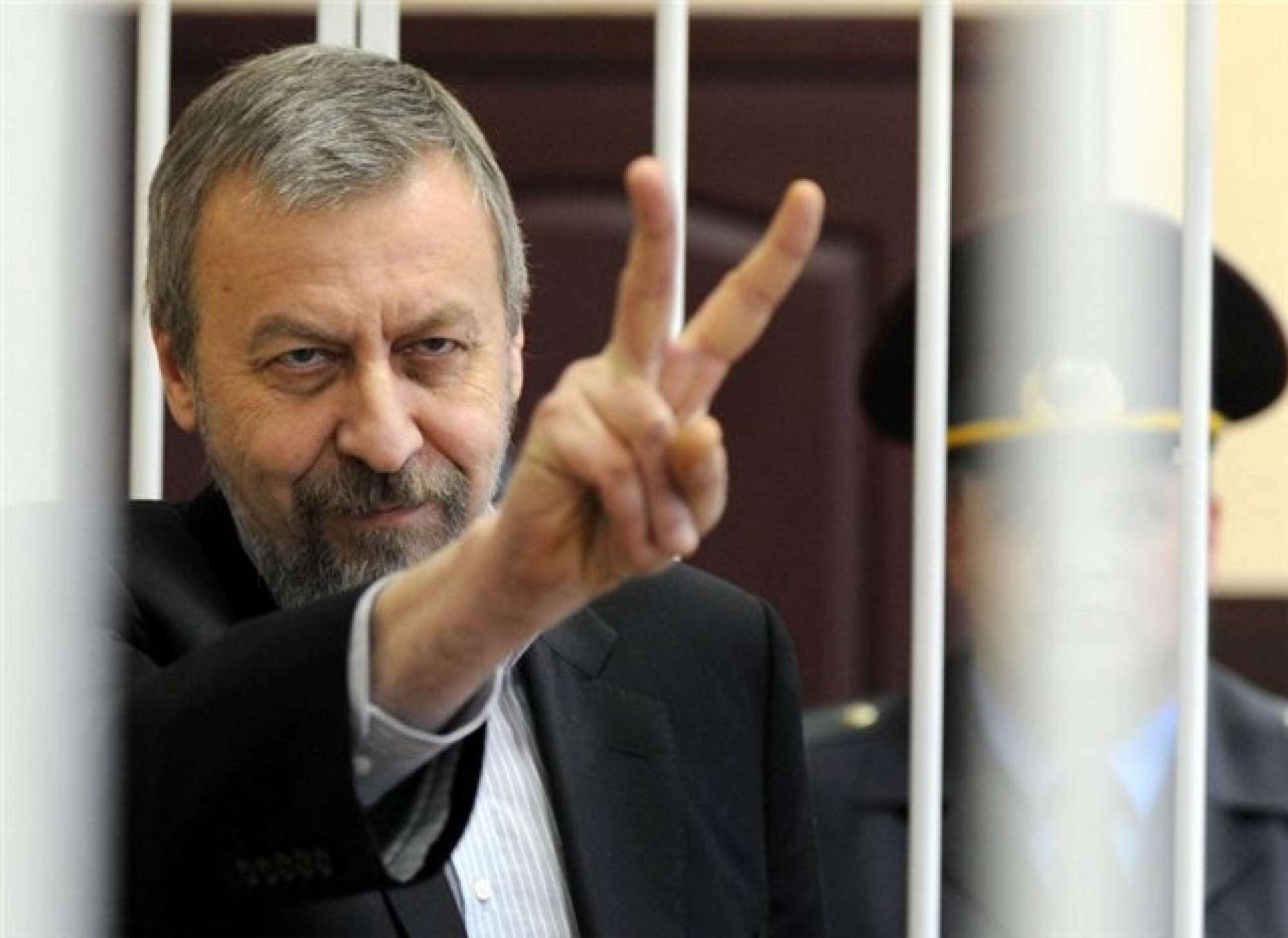
— The other day you presented in Warsaw the book you compiled, “Belarus in NATO.” Why was this book published now?
— The book has come out now because the situation has changed dramatically. With Russia's full-scale invasion of Ukraine, questions about any other security configurations in Europe have disappeared.
Only NATO and Belarus’ participation in NATO, full membership in NATO can ensure our security, without which there will simply be no development of the country, there will be no independence, there will be no democracy.
Therefore, today we need, firstly, to talk about it, discuss it, definitely talk to people, tell what NATO is, what benefits we will have, why neutrality in the modern world is impossible for us (it’s just insanely expensive), and why the regional security system will not work. Regional systems can work as some kind of links within NATO, but as independent security structures they will not be able to fulfill the task.
The European Belarus civil campaign and me personally have long been determined with our position on this issue — this is the inclusion of Belarus in all European structures, and the main ones are the European Union and NATO.
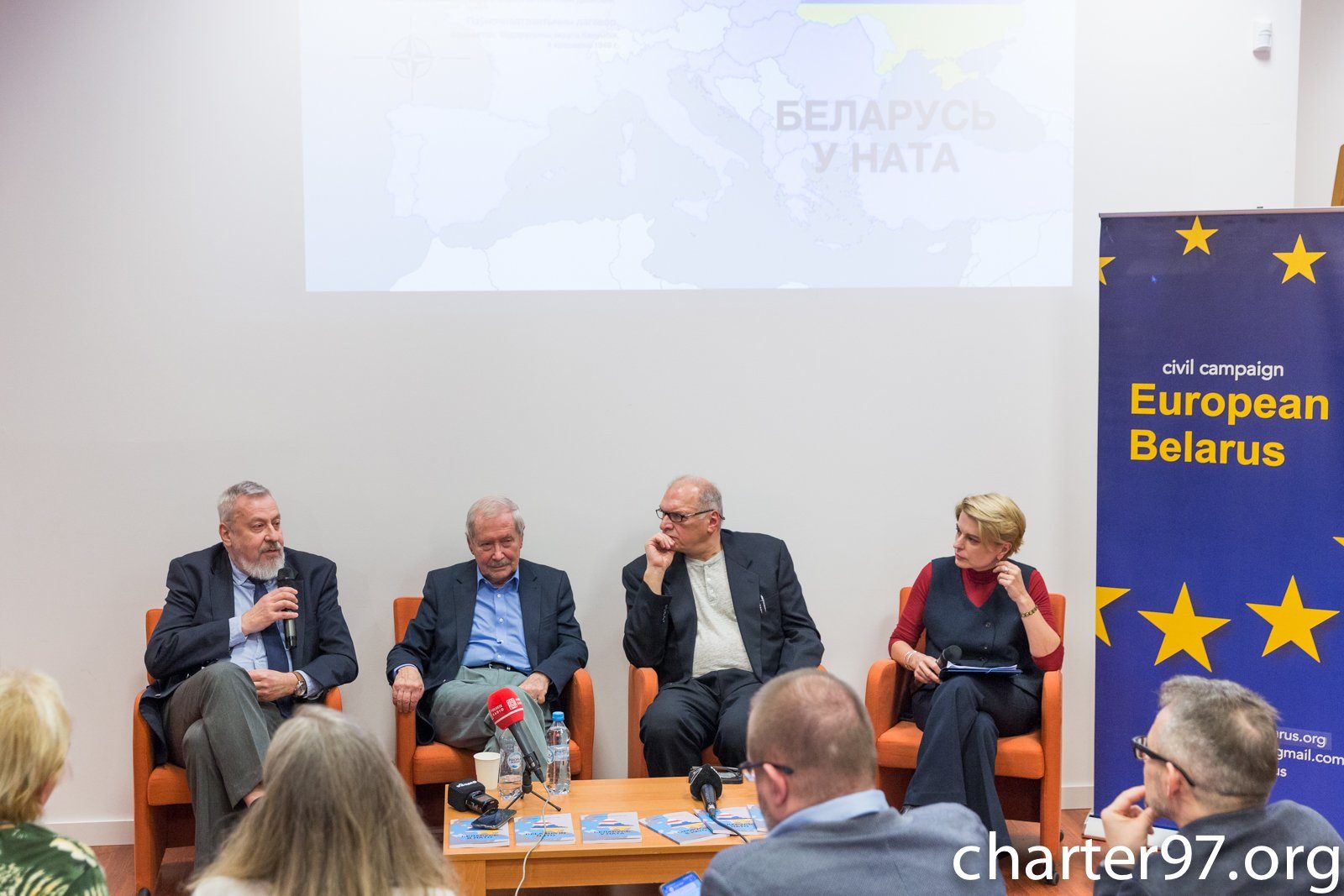
Some discussions have already taken place. We know that the Belarusian Popular Front believes that Belarus should join NATO. The Young Front openly stated this. Now, for example, the Christian Democrats have announced this. It is necessary to prepare public opinion, because decisions after the liberation of Belarus from Lukashenka will have to be made quickly. And the decisions must still be qualified, and not like what often happens with us: let’s all go there in a crowd, they are singing sweet songs there.
— In an interview with Voice of America, you said that “the time is now very turbulent.” Many processes are taking place that previously seemed unreal. What window of opportunity is opening for Belarus now?
— Belarus now largely depends on Ukraine. Lukashenka dragged Belarus into the war.
Now they are somehow beginning to obscure this fact, but the Lukashenka regime is a full-fledged participant in the war against Ukraine. When they tell us (and even the Ukrainians are starting to say this) that “he didn’t cross the border,” we must remember that the territory of Belarus is now completely under the control of Russia.
On the territory of Belarus they treat murderers, repair equipment, and help kidnap children. I am sure that Russians also secretly carry out combat missions from the territory of our country.
What is this if not full participation in the Kremlin war? We talk about this constantly and use all our capabilities to declare to the West that full assistance to Ukraine is important for us too.
Last year, in my opinion, the West lost. Ukraine built its strategy on the basis that it would be able to achieve a turning point if it was provided with the necessary weapons, if it was helped to close the sky. None of this happened.
The West got by with half measures. That is, there is a lot of verbal support, partial support with weapons — but not enough to help Ukraine turn the situation around.
This is the first. That is, the first thing on which we are now very dependent.
Second: Lukashenka and his guardsmen created enormous tension in society. Because not only Belarus, but Europe has not seen such repressions since the war.
Therefore, we can rightfully say that there are prisoners of war in prisons in Belarus, as Palina Sharenda-Panasiuk called herself. This is true.
Lukashenka is at war with the people. He drove about 10 thousand political prisoners into prison. Families are suffering. There is the wildest tension in the entire society. It cannot exist like this; it will no longer be possible to drive it underground. And now everything that the oprichnina demonstrates, these repressions, they testify to the fear of the dictator himself. He needs victims every day in order to show that he “controls” everything, but he does not control Belarus, he is hated, and this hatred will definitely break through. The challenge now is to ensure that this window of opportunity is not missed again.
— Indeed, based on the feedback from readers of our website, it is clear that people in Belarus are waiting for specific theses and strong decisions. What is your formula: what can and should be done now to remove Lukashenka?
— For those living in Belarus, take care of yourself, your family and friends. Do not participate in various “peramogas”, “personnel reserves”, “worker movements”, entries in the queue for a “passport”, etc. In my opinion, it is obvious that all this is a KGB trap to catch people disloyal to this government and isolate them, even to the point of physical destruction. Those who continue to call for such participation are criminals.
— Preserve and maintain chains of solidarity. As Iryna Khalip said, “Belarusians are geniuses of solidarity” and will always find a way to help people in the most difficult times. It is necessary to remember about personal safety, but also remember about those who need help.
— Improve the Belarusian language and learn English. As the recent discussion of the book “Belarus in NATO” showed, we will really need English after the regime change.
The main thing today is to help political prisoners and their families. Find opportunities to help without exposing yourself. Think about them, pray for them, help each other.
There are no universal recipes, but I am sure that it won’t be long before the window of opportunity opens again.
And today the main burden of bringing it closer falls on those who are outside Belarus. Much depends on us to prepare for decisive actions inside Belarus.
That’s why I feel an acute dislike for some self-proclaimed “leaders”, their mostly behind-the-scenes games with the destinies of political prisoners. They offer to bargain for them with the regime, thereby weakening, greatly weakening, the front of resistance to the regime with their defeatist proposals and sentiments.
Our friends, people who are in prison today, even in the most difficult conditions, inspire Belarusians more than defeatists. Take, for example, Palina Sharenda-Panasiuk and others — they, from behind prison walls, are saying that we cannot give up, we must all remember that we are obliged to liberate Belarus, we must continue to fight this regime.
Therefore, I think there will be moments of crisis that need to be exploited, related to the war, and to internal tension in the country, and to the behavior of Russia, which is no longer able to massively support the dictatorship in Belarus.
— That is, there will definitely be some kind of “black swan” for Lukashenka?
— There will be more than one. I think that “black swans” are already on the distant approaches and are already flying, choosing a place to land in one of the residences.
— Are you ready to head the Ministry of Foreign Affairs or the government in democratic Belarus? What reforms will need to be carried out first?
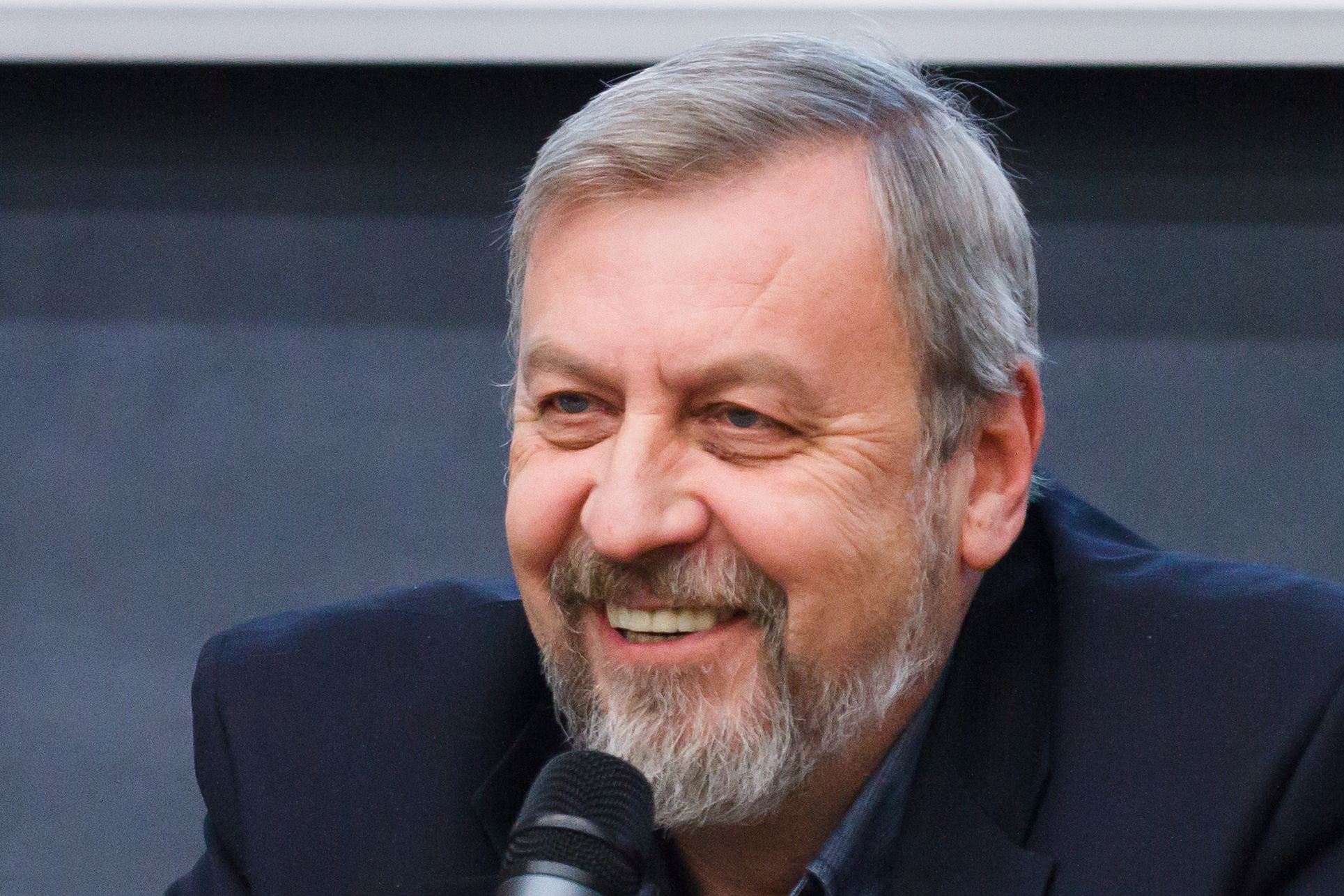
— The Lukashenka regime will leave a very difficult “inheritance.” And we must understand that the first government must be ready to make self-sacrifice, because complex and, probably, unpopular reforms are coming.
But, nevertheless, I believe that it is my duty to participate in reforms. The level is a second matter. We have a good team, and we will never step aside anywhere. We are able to distribute both roles and functions among our team. Therefore, we'll see.
And the main thing is that after the liberation of Belarus, the most important factor will appear: freedom will start working. Both general freedom for the state and freedom for labor, for entrepreneurs, for people. This is the strongest factor.
If you give people freedom and provide decent remuneration for their work, then a lot is possible. Today, a system of theft, extortion, and robbery has been built on the part of Lukashenka, who requires more and more resources to retain power.
What are these resources used for? To the repressive apparatus. This regime exists only through violence. When people become free, it will not be so difficult to reform the same agriculture, because the collective farm system has already become so outdated that it is simply unclear how it still holds up.
This is the number one factor: freedom.
The second factor is, of course, the inclusion of our own intellectual potential, as well as the potential of our neighbors, all European states in general. Because during these 30 years that Lukashenka has kept the country in a collective farm sump, states in Europe have come a long way and are prospering. And they have accumulated a wealth of experience, including the experience of reforms, both successful and unsuccessful. You just need to not be embarrassed to ask and not be self-confident, like, I know everything, but use this experience, invite specialists, of whom there are many around.
It is not necessary to go through “shock therapy”, as was the case in Poland. You can go through “velvet therapy”, like in Czechoslovakia. You can go through reforming the same collective farms, as in Lithuania, reforming the financial system, as in Slovakia. Very rich experience all around.
And I always say that Belarus will definitely be a natural success story in terms of reforms. Because the country is governed, the country is hardworking, it has a high educational workforce qualification, and a very high degree of responsibility.
Belarusians have such invaluable qualities that our country will very quickly get back on its feet after gaining freedom. But for this we will have to do our best.
— What would be the greatest 70th birthday gift for you?
— Free Belarus, of course. There cannot be a better gift both for the date and without the date. Then I can return home.
I think that I’m not in emigration, I’m just on another business trip, like a diplomat. Well, yes, it dragged on, but still I live as if on a business trip, after which I will return home.











